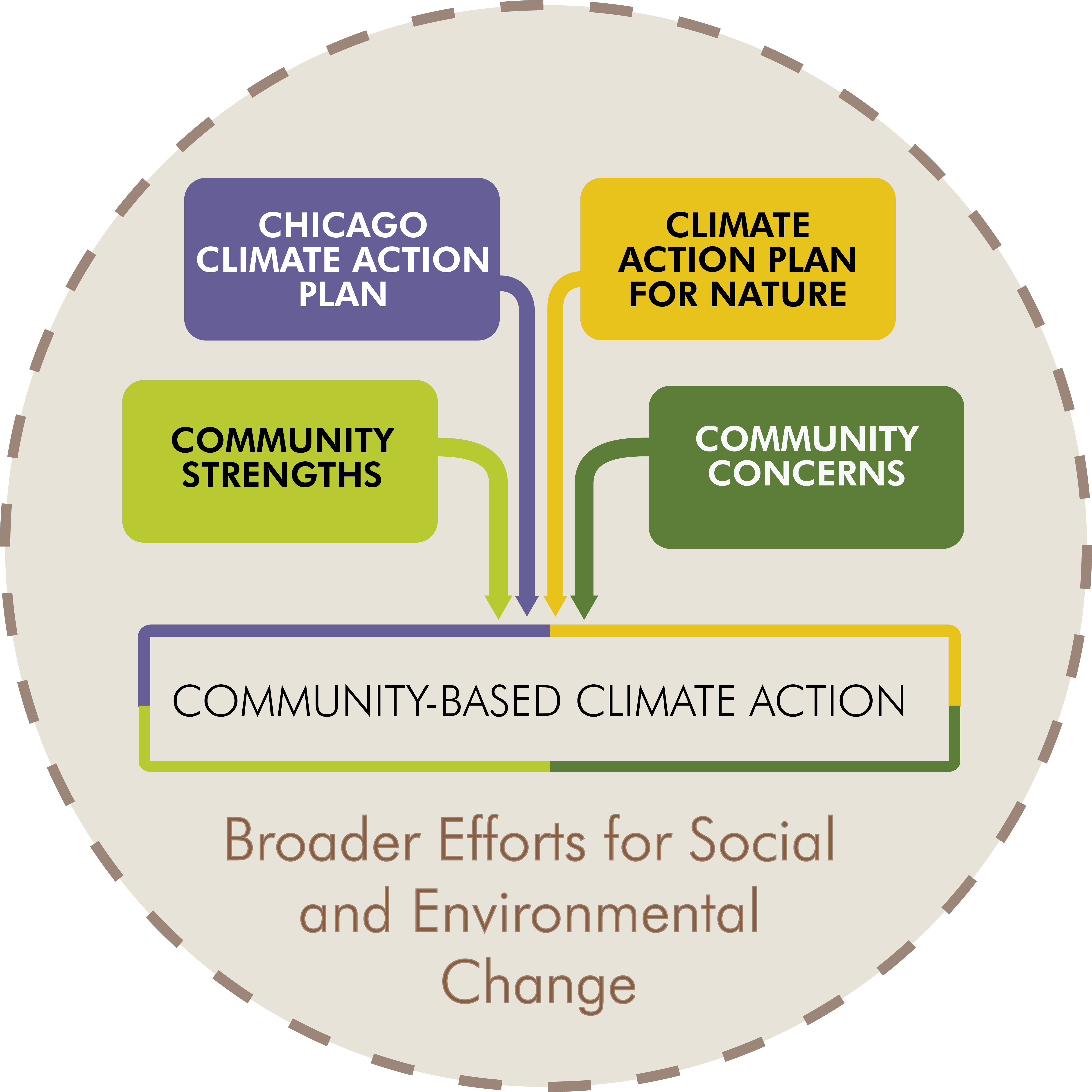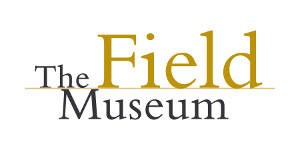About
You are here
Contact Us
Please feel free to contact us if you have questions or want help figuring out how to use the tools in your work.
Get ideas from other Toolkit users, and share your experiences, at: climatechicago.fieldmuseum.org/share or https://www.facebook.com/climatechicago/?ref=bookmarks
About The Project
Overview:
To create the Chicago Community Climate Action Toolkit, The Field Museum worked with partner organizations in four Chicago neighborhoods—Pilsen, Forest Glen, South Chicago, and Bronzeville—to develop and carry out local climate action projects. Anthropologists and ecologists from the Museum’s Keller Science Action Center worked with community partner organizations to:
- Understand the region’s two climate action plans
- Identify community strengths and concerns related to these plans
- Develop and implement local climate action projects that:
- build on community strengths
- address community concerns
- advance partners’ core organizational work
- implement some of the strategies from the region’s climate action plans
- recruit additional local and technical partners, and
- sustain and expand the work.
The resulting projects aim to simultaneously implement the Chicago region’s climate action plans and improve quality of life at the local scale as well as influence broader networks and efforts for social and environmental change.
Watch a short video of Toolkit Project Manager Jennifer Hirsch presenting the approach at the Garrison Institute's Climate, Mind and Behavior Conference in October 2011.
In 2014-15 Field Museum and partners added additional tools based on the pricipals stated above, with a special emphasis on linking individuals and communities to urban nature, while other new tools addressed the growing popularity of urban cycling, and the health, economic, and climate advantages of green cleaning. The new tools are integrated throughout the website.
Based on research:
The projects are based on research conducted by ECCo anthropologists in partnership with community organizations. In total, the Museum conducted research in nine communities across Chicago between 2008 and 2011.
Learn more about the research and download reports.
Broad collaboration:
As part of the Toolkit project, we also worked with a number of other Chicago organizations focused on climate change, environment, and related issues to create multimedia climate action tools that build on our research findings, our knowledge of climate science, and our museum expertise translating complex science into accessible materials for the public. The tools on this site document the experiences of our community partners, present the basics of climate science as they relate to the Chicago region, and provide ideas for local climate action. They are intended to help other communities design and carry out their own projects that simultaneously address climate change and improve quality of life.
See a full list of our Toolkit partners with contact information.
We learn from the past to create innovative solutions for the future:
As a natural history museum, we educate the public about how learning from the past can help all of us envision diverse pathways for the future. As long as we’ve been on the planet, we humans have been experimenting with different ways of using natural resources to respond to the concerns we all share, such as finding food and forming societies. The result has been a world of different cuisines, religions, family structures, governments, etc. For much of human history, our resource use had minimal impact on the environment. However, as people settled and created large-scale, hierarchical societies, human impact on the environment increased, and it accelerated significantly with industrial production.
Today, we face the challenge of using the Earth’s limited resources in ways that do not worsen—and in fact try to reduce—the effects of global climate change. But how do we meet that challenge? To make climate action successful, we need to find sustainable ways of living. What choices do we make about the food we eat? How do we build homes to care for our families and the environment? How do we foster strong communities? Can we get where we need to go in ways that emit less carbon? The answers depend on the decisions that we make about how to use our natural resources—as individuals, communities, businesses, organizations, governments, etc. The Toolkit projects demonstrate new ideas for using resources in ways that make climate action an integral part of how we live our lives.
Climate action happens in different ways--but needs to involve all levels of society:
The four Chicago Community Climate Action Toolkit projects offer diverse models for taking climate action at the local level. But all their projects involve multiple levels of society, from individuals to communities to government.
Learn more about the different ways in which climate action happens.
Field Museum Project Team
Project Managers: Jennifer Hirsch, Mario Longoni, and Sarah Sommers
Team Members: Lori Barcliff Baptista, Rosa Cabrera, Aasia Castaneda, Kimberly Durante, Cassie Halls, Peter Herbst, Ryan Lugalia-Hollon, Lisa See Kim, Abigail Derby Lewis, Kate McClellan, Lena Reynolds, Erica Rodriguez, Rebecca Schillo, Madeleine Tudor, Alexis Winter
Interns: Heather Bulthuis, Kelly Butler, Heather Faivre, Grace Kaminski, Hilary McNerney, Kantara Souffrant
For assistance, contact:
Mario Longoni, (312) 665-7547, mlongoni@fieldmuseum.org
Major Sponsor: The Boeing Company. Additional Support: City of Chicago and Global Philanthropy Partnership.



